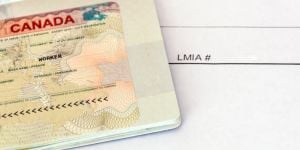
How does the healthcare system in Quebec operate? Can you avail yourself of its services when needed? Discover the answers to these questions in this article.
Quebec's health and social services system was set up in 1971 after the Quebec National Assembly passed the initial Act respecting health services and social services. It operates as a public system, with the government acting as the primary insurer and administrator. Funding for health and social services mainly comes from general taxation, including taxes imposed by the Quebec government deposited into the Consolidated Revenue Fund, contributions from employers and individuals to the Health Services Fund, the funding of the Health and Social Services System, and transfers from the federal government.
When arriving in Quebec, it's necessary to visit the Régie de l'assurance maladie du Québec (RAMQ) to apply for your health insurance card, formerly known as the Carte soleil. This card grants you access to health services covered by the province's basic health insurance plan. It is available to permanent residents and those holding a work permit in Quebec (excluding working vacation permits), provided they reside in Quebec for more than 183 days a year. Some students may be eligible for RAMQ coverage if their home country has an agreement with Quebec; otherwise, private health insurance is necessary.
Some medications and specific healthcare services, like orthodontics and osteopathy, are not included in the basic health plan. It is advisable to consider supplementary health or private insurance. Many employers offer additional health insurance, so check if your company is affiliated with a mutual insurance company. You may need to subscribe to the insurance after 3 months on the job, or else you may have to reimburse the RAMQ. For international students, numerous universities, CEGEPs, schools, and institutes provide medical insurance options in case of necessity. Verify with your institution to determine your eligibility.
In case of emergency, dial 9-1-1 to access ambulance, police, or fire departments. If you can travel, go to the emergency room of the nearest hospital, where certain hospital services will be provided free of charge upon presentation of your RAMQ card.
Good to know:
If you don't have supplementary private insurance, you'll have to take out public drug insurance. The amount you pay depends on your net family income.
Obtaining a health insurance card in Quebec
The health insurance card entitles you to free health care in public institutions. You won't even have to pay in advance if you show your card to doctors and hospitals. To obtain a registration form, visit your nearest Régie office. You can also register online. You will be asked to provide certain documents: your passport and proof of your immigration status in Canada, your Certificat de sélection du Québec (Quebec selection certificate), and so on.
A passport-size photo specific to RAMQ is also required. This can be done on-site at certain Régie offices. Otherwise, you'll have to go to a supermarket and specify that you need a RAMQ-size photo. On presentation of your documents, you will receive a letter containing information about your RAMQ coverage and the date on which it was granted. You will then receive your health insurance card by mail.
If you are originally from Denmark, Finland, France, Greece, Luxembourg, Norway, Portugal, or Sweden, you can present a certificate of affiliation to your country's public health system, which you should request from your health insurance fund before your departure. This document will entitle you to RAMQ coverage as soon as you register, whereas other applicants are subject to a three-month waiting period.
Make sure you carry your card with you at all times, never lend it to anyone, and never lose it. You could lose your card benefits if you lend it to anyone. You could also be subject to criminal charges and deportation from Canada. If your card is lost, stolen, or damaged, you will be charged a fee of CAD$15 or CAD$25. For more information, please visit the RAMQ website.
Good to know:
If you're a tourist or on a WHP in Quebec, you won't be covered by RAMQ and will need to take out private insurance. Each Canadian province has its own healthcare system.
Where can I go for treatment in Quebec?
If you're ill in Quebec, you can go to a "walk-in" clinic. Despite the "no appointment" label, some of these clinics require you to call the day before or early in the morning to reserve a spot. In others, you'll simply have to arrive early in the morning and hope to see a doctor before closing time. Depending on how the clinic operates, you may have to wait several hours before seeing the doctor. There are also private clinics where care is faster but is not reimbursed. Students can also visit their university clinic free of charge. This is often quicker, as these clinics only accept university students and staff. On the island of Montreal, network clinics are available without appointment every day, even on holidays. They offer radiology and laboratory services for urgent cases.
Another solution is to go to the hospital. The advantage is that you can carry out all the necessary tests on the spot. However, waiting times for treatment are extremely long: you can spend all day, or even all night, waiting. The Quebec healthcare system is particularly criticized for the waiting times in its hospital emergency rooms.
A third solution is to approach a family doctor and make an appointment directly with him or her rather than going to a clinic. Since Quebec is facing a shortage of family doctors, the government has set up an Internet-based family doctor finder. By registering with this window, you will join a waiting list, and a doctor will be assigned to you as soon as possible. Here too, waiting times are very long: expect to wait around a year and a half if you have no particular health problems.
Certain diseases, poisoning, and infections must be reported to public health authorities by physicians, nurse practitioners, or medical laboratories. These diseases, known as "notifiable diseases" or "MADOs", include syphilis, chlamydia, measles, poisoning following a major gas leak, HIV and AIDS. In the case of HIV and AIDS, the information transmitted differs, and the name of the sufferer will not be passed on to the public health authorities. For a more complete list of MADOs, visit the Quebec Ministry of Health and Social Services website.
Good to know:
Some clinics do not accept new patients. For a list of walk-in clinics that accept new patients and for information on clinic hours, waiting times, and days of operation, visit clinique.bonjour-sante.ca and sante.gouv.qc.ca. The bonjour-santé.ca site also lets you book an appointment at a walk-in clinic if you don't have a family doctor, but you'll have to pay for this service.
Services for young people in Quebec
There are youth clinics where you can consult nurses and gynecologists qualified in sexually transmitted infection screening, contraception, and abortion, among other things. You can request anonymity for some of these services.
As a student, you're exposed to stress and exhaustion. That's why many educational institutions offer psychological support services. Whether or not your situation is related to your studies, some professionals can help. Contact your school to find out more about the support services available.
Being pregnant in Quebec
Temporary residents on a tourist visa or working holiday permit (WHP) are not eligible for RAMQ coverage. If they become pregnant, they will have to pay all pregnancy and childbirth follow-up costs and have their own health coverage. These costs can exceed CAD$10,000 but vary according to the type of delivery chosen and the care required. On the other hand, permanent residents and women with a work permit other than a WHP benefit from Quebec health insurance and will not have to pay pregnancy and childbirth-related expenses.
In Quebec, you can give birth in a hospital, a birthing center or at home. Pregnancy follow-up begins in the third month. If you wish to give birth in a hospital, you must contact your nearest CLSC to organize your pregnancy follow-up. In this case, the follow-up will be carried out by a doctor. You can consult a list of CLSCs here. Birth centers are facilities staffed exclusively by midwives. Birth in a birth center or at home is therefore reserved for women whose pregnancy presents no risk and who do not wish to have an epidural. If you would like to give birth in a birth center, please contact the one you are interested in directly. You can also give birth in a hospital with a midwife who usually works in a birth center. Midwives also perform home births. For women without insurance, giving birth at home or in a birth center is much less expensive than giving birth in a hospital.
A child born in Quebec obtains Canadian nationality, but coming to Quebec just to give birth is strictly forbidden. What's more, parents will have to pay their own medical expenses. After the birth, you can benefit from home visits from nurses or a midwife for some time. Several organizations also offer breastfeeding support. Don't hesitate to ask for information at the hospital or birthing center where you'll be giving birth.
Good to know:
Most private insurances do not automatically cover pregnancy. If you plan to conceive during your stay in Quebec, you should ask the insurer for details before taking out a policy. If you don't have insurance while you're pregnant, you can contact the Doctors of the World clinic in Montreal. Good news: since 2021, a bill has been tabled to ensure that all children born in Quebec are insured by the RAMQ, which was not the case before.
Useful links:
Régie Assurance Maladie du Québec - RAMQ
Ministère de la Santé du Québec - general information on the healthcare network
We do our best to provide accurate and up to date information. However, if you have noticed any inaccuracies in this article, please let us know in the comments section below.











